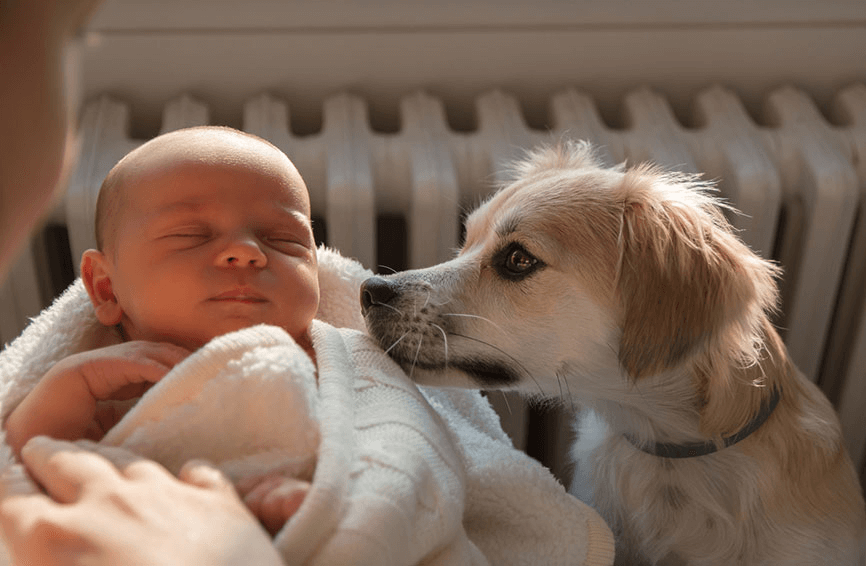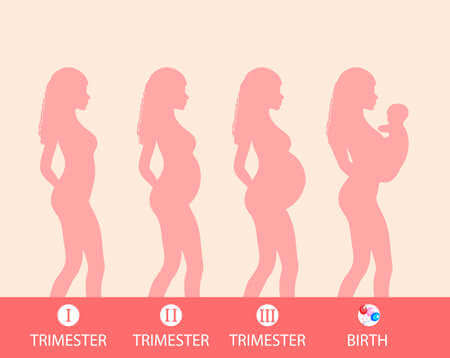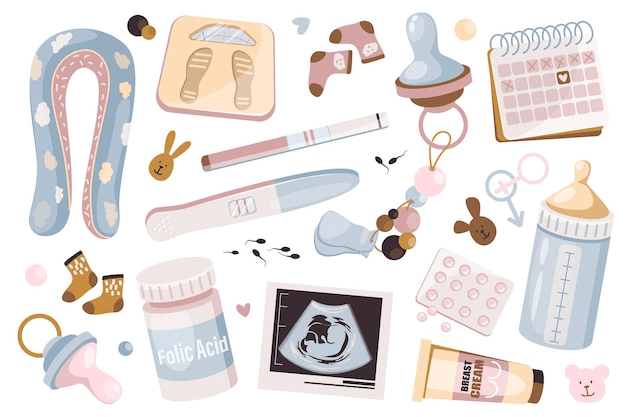How to Prepare Your Pets for a New Baby?

Why It’s Important to Prepare Your Pets for a New Baby
Just like humans, pets thrive on routine. When a new baby enters the picture, everything changes—the daily schedule, the noises in the home, and even the attention your pets once received. Preparing your pets ahead of time for these changes can help ease the transition and prevent unwanted behavioral issues.
Dogs, for instance, may become overly protective or anxious around the new baby, while cats might feel stressed by new smells and sounds. It’s important to introduce these changes gradually so your pets have time to adjust before the baby comes home.
Start Early: Gradual Changes
Pets are highly sensitive to changes in their environment. To avoid overwhelming them, it’s a good idea to start making gradual changes to their daily routine long before the baby arrives. If your pet is used to sleeping in the nursery or being your constant companion, start setting boundaries early. You can introduce baby-free zones in your home, such as the nursery, to help them understand areas that will soon be off-limits.
If you anticipate changes to your pet’s schedule, such as walking your dog at different times of day, begin this transition well before the baby’s arrival. This way, they won’t associate the changes with the baby, which can lead to jealousy.
Introducing New Scents and Sounds
Babies come with a host of new smells and sounds that pets aren’t used to. Before your baby arrives, start acclimating your pets to these unfamiliar elements:
- Baby lotions, shampoos, and powders: Purchase a few baby products and let your pet sniff them. This will help them recognize the new smells they’ll encounter once the baby arrives.
- Baby sounds: Consider playing recordings of a baby crying, cooing, or laughing to get your pet accustomed to the noises they’ll hear. You can start with lower volumes and gradually increase it so your pet isn’t startled by the baby’s presence.
For more information about the various changes and challenges expecting moms experience, including how scents can affect pregnancy, check out this article on food aversions.
Training and Obedience
Good behavior from your pets is crucial when you’re bringing home a newborn. Dogs should be able to follow basic commands like “sit,” “stay,” and “leave it” reliably, especially in unpredictable situations. If your dog is prone to jumping on people or being overly excitable, now is the time to reinforce obedience training. If necessary, consider hiring a professional trainer to help work on specific behaviors before the baby arrives.
Cats are a little different, but it’s still important to prepare them as well. You may need to gradually limit their access to certain areas, like the crib or changing table, by using barriers or training them with positive reinforcement.
Introducing Baby Gear
The sudden appearance of baby items like strollers, cribs, and swings can confuse or scare pets. Start introducing baby gear early, allowing your pets to sniff and explore items like the crib or stroller while they’re still empty. You can even push the stroller around your home so your pet gets used to its movement.
Additionally, make sure all baby gear is clean and safe for your pets and baby. Opt for baby-safe cleaning products to minimize harmful chemicals that could affect both your newborn and pets.
Supervised Interaction
Once your baby arrives, it’s critical to monitor the initial interactions between your pets and your baby. Dogs and cats are naturally curious, and while they may sniff or try to get close, it’s important to keep the first few interactions calm and controlled.
- Start slow: Allow your pets to sniff the baby’s blanket or clothing before introducing them face-to-face.
- Keep it calm: Use a soothing voice and reward your pets with treats and praise for good behavior.
As time goes on, you can gradually increase the amount of contact between your pets and the baby, but always ensure that these interactions are supervised for safety.
Managing Pets’ Emotions
Pets can experience feelings of jealousy or anxiety when their routine changes, especially when they feel like they’re receiving less attention. Some signs of stress in pets include:
- Excessive barking or meowing
- Destructive behavior, such as chewing or scratching furniture
- Aggression or withdrawal
To minimize these reactions, try to maintain some of your pet’s regular activities, like daily walks or playtime. This will reassure your pet that they’re still an important part of the family, despite the new addition.
After Baby Comes Home
The first few days after bringing your baby home can be a whirlwind for everyone involved, including your pets. Stick to a balanced routine to avoid overwhelming your furry friends with too many changes at once. Make time to bond with your pets, even if it’s for a short walk or some cuddle time on the couch.
You can also prepare in advance by reading more on how to handle the early stages of pregnancy and parenthood. This first trimester survival guide offers valuable tips for managing the first few weeks of pregnancy and beyond.
Common Questions New Parents Have About Pets and Babies
Will my pet feel left out after the baby arrives?
It’s possible that pets may feel neglected if their routine changes drastically. To avoid this, make sure to maintain their daily activities, and try to involve them in family life as much as possible.
How can I prevent my pet from becoming anxious?
Slowly introduce changes in routine and environment, use positive reinforcement, and maintain regular playtime. This helps reduce stress and ensures your pet feels loved and secure.
Should I adjust my pet’s feeding schedule?
If your new routine with the baby affects your pet’s feeding time, make gradual changes to their schedule before the baby arrives, so the adjustment feels less sudden.
Conclusion
Preparing your pets for a new baby is essential for ensuring a peaceful and harmonious home. With a little planning and patience, you can help your pets adjust to the exciting changes that come with a new addition to the family. By gradually introducing new scents, sounds, and routines, as well as ensuring supervised interactions, you’ll create a safe and happy environment for both your baby and your furry friends.
Remember, the key is to start early and stay consistent, ensuring that your pets feel just as loved and valued as before. Happy pet parenting!






